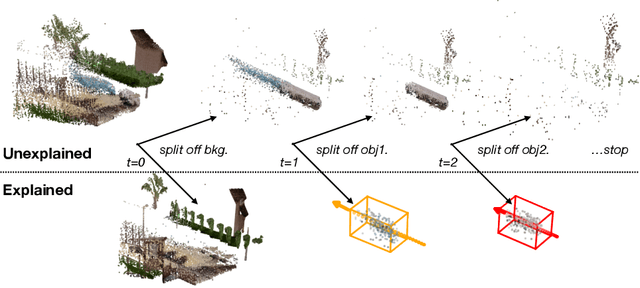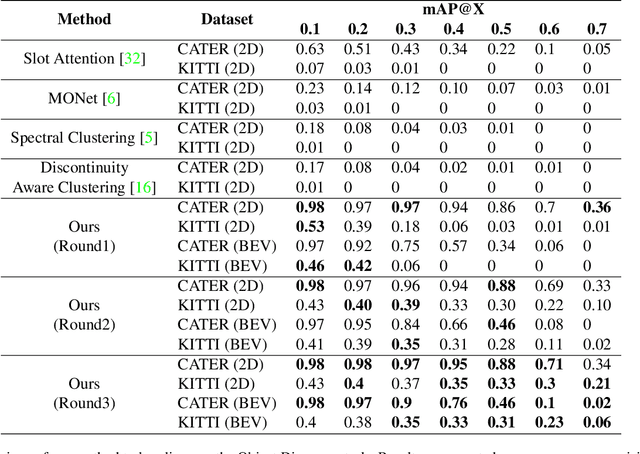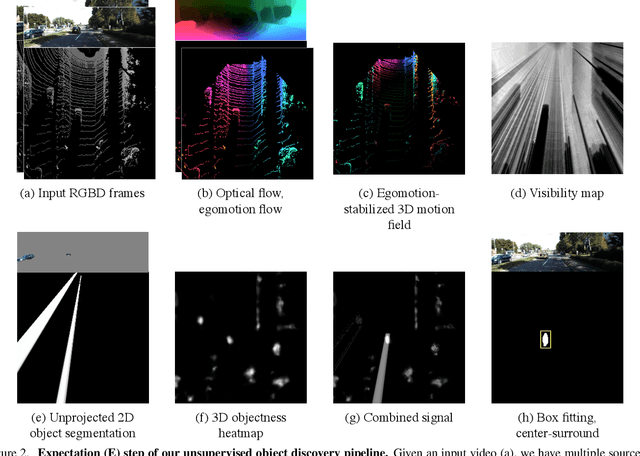Track, Check, Repeat: An EM Approach to Unsupervised Tracking
Paper and Code
Apr 07, 2021



We propose an unsupervised method for detecting and tracking moving objects in 3D, in unlabelled RGB-D videos. The method begins with classic handcrafted techniques for segmenting objects using motion cues: we estimate optical flow and camera motion, and conservatively segment regions that appear to be moving independently of the background. Treating these initial segments as pseudo-labels, we learn an ensemble of appearance-based 2D and 3D detectors, under heavy data augmentation. We use this ensemble to detect new instances of the "moving" type, even if they are not moving, and add these as new pseudo-labels. Our method is an expectation-maximization algorithm, where in the expectation step we fire all modules and look for agreement among them, and in the maximization step we re-train the modules to improve this agreement. The constraint of ensemble agreement helps combat contamination of the generated pseudo-labels (during the E step), and data augmentation helps the modules generalize to yet-unlabelled data (during the M step). We compare against existing unsupervised object discovery and tracking methods, using challenging videos from CATER and KITTI, and show strong improvements over the state-of-the-art.
 Add to Chrome
Add to Chrome Add to Firefox
Add to Firefox Add to Edge
Add to Edge